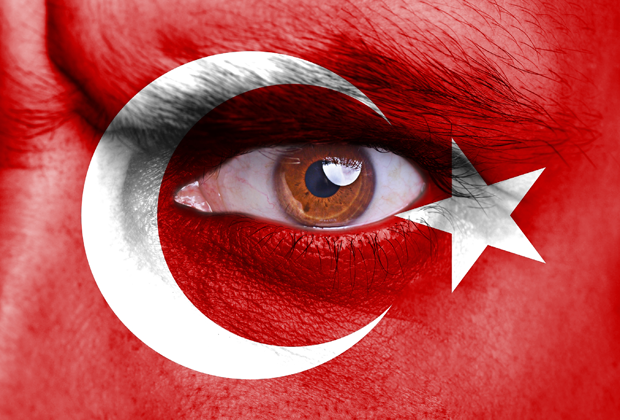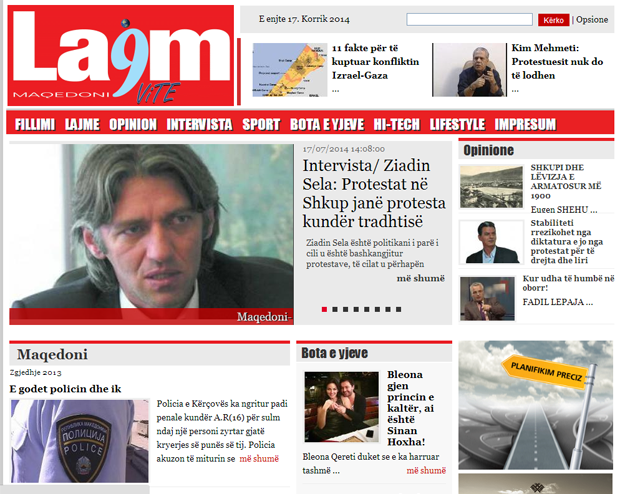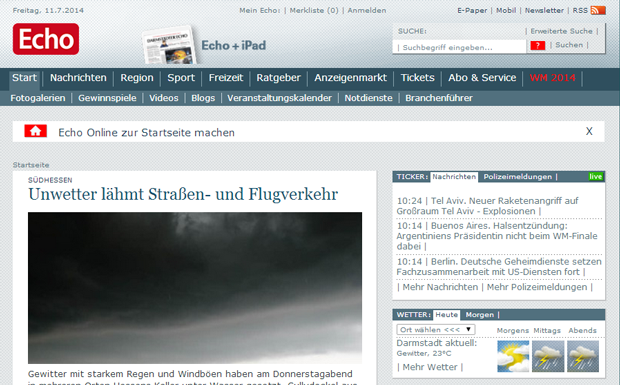1 Aug 2014 | Mapping Media Freedom, News, Politics and Society, Turkey

Photo illustration: Shutterstock
Since the beginning of this year, cases of assault against journalists, legal threats and lay offs worsened Turkey’s already precarious state of press freedom.
In May, Freedom House ranked Turkey’s media climate “not free.” The Istanbul-based non-profit news website Bianet publishes quarterly media monitoring reports on press freedom breaches within Turkey. Along with new fines against media outlets and other ominous restrictions, the most recent report shows that physical assault against journalists increased over the last three months. According to the new report, 54 journalists were victims of assault between April and June. Bianet’s previous report documents “at least” 40 accounts between January and March.
Erol Önderoğlu, author of Bianet’s media reports, attributes the increased number of assaults this spring to recent demonstrations where journalists were injured. This May, protestors commemorated the first anniversary of the Gezi Park demonstrations, just a few weeks after large protests took place on May 1. Önderoğlu says police and other security officers are more prone to use violence at protests. “They think they have the right to exert a certain violence against demonstrators,” he says. Önderoğlu sees last year’s Gezi Park protests as a turning point for this kind of aggression towards journalists at demonstrations. Since then, Önderoğlu says, police officers became the main source of violent assault against journalists.
At May 1 protests in Istanbul, at least twelve journalists were injured while reporting. One editor for the news website t24 was detained by police for hours. Violence against journalists erupted again during the Gezi commemorations this year. While reporting live from the protests, CNN correspondent Ivan Watson was harassed by plainclothes security officers who demanded to see his passport. Watson and his crew were then detained and Watson tweeted that he was kneed while in police custody.
Many journalists don’t file legal complaints after they’ve been assaulted. According to Önderoğlu, especially journalists working for mainstream news outlets feel their own jobs may be threatened if they speak out against police. “They have this feeling that by condemning civil servants and police officers for using force, they are in a way putting the board and the directors of their own media organization in a bad position,” Önderoğlu says, adding that because of the lack of editorial independence in Turkey, conflicts with government can lead to journalists being fired. Earlier this year, the extent of Prime Minister Erdoğan’s influence over some media organizations was revealed by leaked phone conversations between Erdoğan and the owners of media outlets, including the newspaper Milliyet and broadcaster Habertürk.
The journalists Ahmet Şık, Onur Erem and Ender Ergün did file a complaint over abuse of authority after being assaulted during the 2013 Gezi Park protests. Six months later, their cases were rejected by an Istanbul prosecutor. Bianet reported that 153 journalists were injured during the Gezi Park protests. There still has not been an investigation into those injuries, and Önderoğlu sees the rejection of Şık, Erem and Ergün’s cases as a bad precedent for assaulted journalists seeking justice. “We need not only the stop of police aggression,” Önderoğlu says, “but also the end of impunity against policemen of such accusations.”
More reports from Turkey via mediafreedom.ushahidi.com:
Turkey: Broadcaster threatens to stop covering presidential candidate
Turkey: Physical assaults on journalists increase
Turkey: Media monitoring agency revokes license for Germany-based broadcaster
Turkey: Constitutional Court rules investigation into Hrant Dink’s assassination violated family’s rights
Turkey: Prime Minister files legal complainst against newspaper editor
This article was posted on August 1, 2014 at indexoncensorship.org
21 Jul 2014 | Mapping Media Freedom, Netherlands, News
Separatists in East Ukraine threatened journalists reporting on the Malaysia Airlines MH17 disaster. The plane was downed on Thursday 18 July killing 298 people, including 193 Dutch citizens.
Writing for The Daily Beast, Anna Nemtsova and two colleagues were detained at the morgue by separatists.
On Monday 21 July, Rudy Bouma, a reporter for the Dutch TV broadcaster Nieuwsuur, took photos of rebels carrying weapons at the train station in Donetsk. The separatists controlled the train that was carrying the bodies of the victims.
More reports from The Netherlands via mediafreedom.ushahidi.com
Journalist denied entrance to public court hearing
‘Rules for using drones by journalists too restricted’
Journalists’ cameras seized by police
Dutch magazine on trial for photographing princess
This article was posted on July 21, 2014 at indexoncensorship.org
18 Jul 2014 | Macedonia, Mapping Media Freedom, News, Politics and Society

Besim Ibrahimi, intern for the Albanian-language newspaper Lajm, was arrested on Saturday, 5 July during a rally against the jailing of alleged extremist ethnic Albanian Muslims for the “terrorist” murders of ethnic Macedonians. The journalist was accused of taking part in the violent protests, while he was covering the rally under the instructions of his editor. Ibrahimi was released on Sunday, but the prosecutor has not yet decided if he will file charges against him or not.
“The policemen from the special units approached me and forced me to lie on the ground. When I told them that I am a journalist and I am here only to cover the protests, instead of releasing me, they beat me with batons and kicked me,” Besim Ibrahimi told Index few days after his prosecution.
“One of them told me ‘you’re not a journalist, you came here to protest’ and another was shouting ‘hit him, hit him’. And they just kept beating me until my glasses broke too. When they put me inside the vehicle, along with two other guys who were also treated inhumanely, they started using some hate language like ‘I will kill you Albanians’, ‘Albanian scum’”, he continued.
Ibrahimi spent 24 hours in the police station in Kisella Voda and was released on a promise to appear in court after a decision by the Court of Skopje. According to Ibrahimi, his case is currently under investigation and he aims to present evidence in order to withdraw the claim.
The Journalists’ Association of Macedonia, ZNM, strongly condemned the arrest of the young journalist and expressed its concerns “for establishing this extremely undemocratic practice in Macedonia of arresting journalists without having hard evidences.”
As Ibrahimi explained to Index, the Macedonian government controls almost the 90% of the media and the Albanian-language newspaper Lajm is targeted by the pro-government media. “They accuse us of fueling the protests. Albanians in Macedonia are facing state discrimination.”
The recent ethnic tensions in the country were raised when life sentences were handed down to six alleged Muslim radicals for the killing of five ethnic Macedonians at Orthodox Easter in 2012.
On Friday, July 4th thousands of protesters gathered outside the criminal court building in Skopje. According to media reports, the protests turned violent with the riot police firing tear gas, stun grenades and water cannon into the crowd and some protesters throwing bricks and rocks. Six people in total were detained and 20 police officers -as well as some protesters- were injured, the police reported.
Albanians make up a quarter of the country’s 2.1 million population.
More reports from Macedonia via mediafreedom.ushahidi.com
Police pressure journalists during protests in Skopje
Telma TV under government pressure
This article was posted on July 18, 2014 at www.indexoncensorship.org
11 Jul 2014 | Germany, Mapping Media Freedom, News

A local newspaper in the western German city of Darmstadt is at the centre of a legal case that will measure whether readers’ comments are protected by Germany’s press freedom laws.
On June 24, police and the Darmstadt public prosecutor arrived with a search warrant at the offices of the newspaper Echo. A complaint had been filed over a 2013 reader comment on Echo’s website. Months later, a local court issued a search warrant to force the newspaper to hand over the commenter’s user data.
The comment, which was left under the username “Tinker” on an article about construction work in a town near Darmstadt, questioned the intelligence of two public officials there. Within hours, Echo had removed the comment from its website after finding that it did not comply with its policy for reader comments. According to a statement Echo released after the June confrontation with police, the two town administrators named in the comment had filed the complaint, alleging that it was insulting. This January, Darmstadt police sent the newspaper a written request for the commenter’s user data. Echo declined.
When police showed up at Echo’s offices five months after their initial request for the commenter’s identity, the newspaper’s publisher gave them the user data, preventing a search of Echo’s offices. A representative for the Darmstadt public prosecutor later defended the warrant.
“It’s our opinion that the comment does not fall under press freedom because we assume that the editorial staff doesn’t edit the comments,” Noah Krüger, a representative for the Darmstadt public prosecutor, told Echo.
According to Hannes Fischer, a spokesperson for Echo, the newspaper is preparing legal action against the search warrant.
“We see this as a clear intervention in press freedom,” Fischer said. “Comments are part of editorial content because we use them for reporting – to see what people are saying. So we see every comment on our website as clearly part of our editorial content, and they therefore are to be protected as sources.”
In early 2013, a search warrant was used against the southern German newspaper Die Augsburger Allgemeine to retrieve user data for a commenter on the newspaper’s website. In that case, a local public official had also filed a complaint over a comment he found insulting. The newspaper appealed the case and an Augsburg court ruled that the search warrant was illegal. The court rejected the official’s complaint that the comment was insulting, but also ruled against Die Augsburger Allgemeine’s claim that user comments are protected under press freedom laws.
In Echo’s case, the commenter’s freedom of speech will likely be considered in determining whether the comment was insulting. If convicted of insult, the commenter could face a fine or prison sentence of up to one year. Given the precedent from the 2013 case and the public prosecutor’s response, it’s unclear whether press freedom laws may be considered against the search warrant. Ulrich Janßen, president of the German Journalists’ Union (dju), agreed that user comments should be protected by press freedom laws. “If the editors removed the comment, then that’s a form of editing. That speaks against the argument that comments are not editorial content,” Janßen said. Warning that the search warrant against Echo may lead to intimidation of media, Janßen cautioned, “Self-censorship could result when state authorities don’t respect press freedom of editorial content.”
Recent reports from Germany via mediafreedom.ushahidi.com:
Court rules 2011 confiscation of podcasters’ equipment was illegal
New publisher of tabloid to lay off three quarters of employees
Police use search warrant against newspaper to obtain website commenter’s data
Blogger covering court case faced with interim injunction
Competing local newspapers share content, threatening press diversity
Transparency platform wins court case against Ministry of the Interior
This article was posted on July 11, 2014 at indexoncensorship.org



